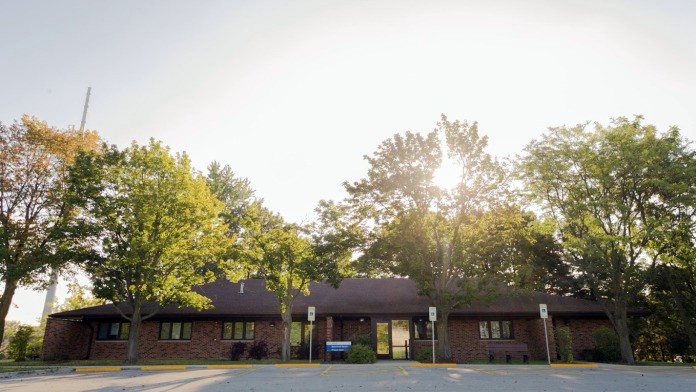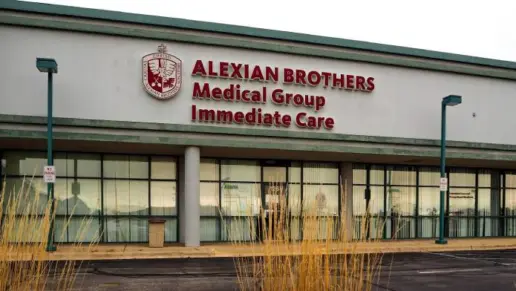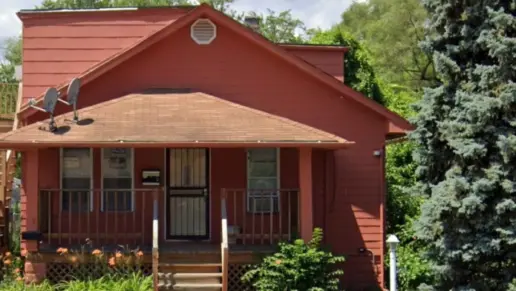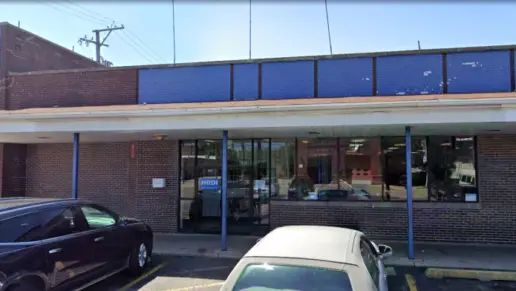What can I say? I feel blessed to have been part of your program. I wouldn't be where I am today if it wasn't for you. THANK YOU ALL for your support and kindness.
About Lake County Behavioral Health – Libertyville Health Center
Specialty rehab programs at Lake County Behavioral Health – Libertyville Health Center include tailored care focusing on women's specific needs and experiences, gender-specific addiction treatment addressing unique challenges faced by men, and accessible addiction treatment using sign language and adapted communication methods.
For recreation, patients can use the meditation room to promote mindfulness during recovery.
Lake County Behavioral Health – Libertyville Health Center has received accreditations from The Joint Commission.
Latest Reviews
Rehab Score
Gallery

Location
Accepted Insurance

Other Forms of Payment
Medicaid is a state based program that helps lower-income individuals and families pay for healthcare. Medicaid covers addiction treatment so those enrolled can use their coverage to pay for rehab. When a program accepts Medicaid the client often pays very little or nothing out of their own pocket.
Private insurance refers to any kind of healthcare coverage that isn't from the state or federal government. This includes individual and family plans offered by an employer or purchased from the Insurance Marketplace. Every plan will have different requirements and out of pocket costs so be sure to get the full details before you start treatment.
Self-pay involves paying for treatment out of your own pocket. You can use savings or credit, get a personal loan, or receive help from family and friends to fund your treatment. If you don't have insurance or your insurance plan doesn't cover a specific program, self-pay can help ensure you still get the care you need.
Financial aid can take many forms. Centers may have grants or scholarships available to clients who meet eligibility requirements. Programs that receive SAMHSA grants may have financial aid available for those who need treatment as well. Grants and scholarships can help you pai for treatment without having to repay.
Sliding scale payments are based on a client's income and family size. The goal is to make treatment affordable to everyone. By taking these factors into account, addiction recovery care providers help ensure that your treatment does not become a financial burden to you or your family, eliminating one barrier to care.
Medicare is a federal program that provides health insurance for those 65 and older. It also serves people under 65 with chronic and disabling health challenges. To use Medicare for addiction treatment you need to find a program that accepts Medicare and is in network with your plan. Out of pocket costs and preauthorization requirements vary, so always check with your provider.
Addiction Treatments
Levels of Care
Treatments
The central task of the Dual Diagnosis Group is to help clients learn more about the interaction between addiction and mental illness, and to help them increase stability in adult functioning through the establishment of sustained sobriety and continued recovery from mental illness. You must be receiving services from at least one of our Behavioral Service programs to be in this group.
Mental health rehabs focus on helping individuals recover from mental illnesses like bipolar disorder, clinical depression, anxiety disorders, schizophrenia, and more. Mental health professionals at these facilities are trained to understand and treat mental health issues, both in individual and group settings.
Programs


Clinical Services
Cognitive Behavioral Therapy (CBT) is a therapy modality that focuses on the relationship between one's thoughts, feelings, and behaviors. It is used to establish and allow for healthy responses to thoughts and feelings (instead of unhealthy responses, like using drugs or alcohol). CBT has been proven effective for recovering addicts of all kinds, and is used to strengthen a patient's own self-awareness and ability to self-regulate. CBT allows individuals to monitor their own emotional state, become more adept at communicating with others, and manage stress without needing to engage in substance abuse.
In the DBT Group patients must be involved in individual therapy at the clinic to be in this group. The group uses instructional lecture, group discussion, behavioral rehearsal with modeling and role-play, written handouts, and homework assignments to help you decrease unmanageable issues in your life. Mindfulness skills are central to this group.
Family involvement with treatment, when clinically helpful to a client's progress, is encouraged. Case managers are available to assist families in obtaining the resources necessary to restore balance. They strive to help youth and their families develop positive coping techniques, communication skills and the means to manage mental health issues, while maintaining a healthy lifestyle.
Group therapy is any therapeutic work that happens in a group (not one-on-one). There are a number of different group therapy modalities, including support groups, experiential therapy, psycho-education, and more. Group therapy involves treatment as well as processing interaction between group members.
In individual therapy, a patient meets one-on-one with a trained psychologist or counselor. Therapy is a pivotal part of effective substance abuse treatment, as it often covers root causes of addiction, including challenges faced by the patient in their social, family, and work/school life.
The Trauma Treatment Program provides services to Lake County residents, ages 2 through 18, who have experienced trauma. Trauma Focused—Cognitive Behavioral Therapy is an evidenced-based treatment proven effective in working with children and adolescents who have experienced trauma. TF-CBT teaches us how to cope with unhelpful or inaccurate thoughts, confusing and overwhelming feelings, and unhealthy or risky behaviors that the experience of trauma many times causes. Topics include: Education about Trauma, Relaxation, How to Identify and Express Emotions.
Amenities
-
Private Setting
Accreditations

The Joint Commission, formerly known as JCAHO, is a nonprofit organization that accredits rehab organizations and programs. Founded in 1951, the Joint Commision's mission is to improve the quality of patient care and demonstrating the quality of patient care.
Joint Commission Accreditation: Yes
Contact Information
18698 Peterson Road
Libertyville, IL 60048


